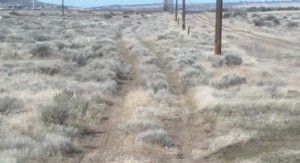In 1975, Red Mountain was a primitive place. A mixture of grasses, desert wildflowers, and sagebrush dominated the landscape. Most of the year it was brown and dry, with a few weeks of green in the spring. The land was bereft of anything that resembled topsoil. The wheat farmers from the nearby Horse Heaven Hills took one look at the place and turned away. It wasn’t worth their effort. Sheepherders had tried to use it as grazing land. They quit. The land didn’t bear the kind of fodder that could support a thriving sheep operation. Everything that had been tried had failed. The place was not suited for traditional agriculture.

Over the years, the vineyards thrived. We learned that we grew remarkable Cabernet Sauvignon, Merlot, Cabernet Franc, Petit Verdot, Syrah, Mourvédre, Cunoise, Viognier, and Roussanne. While the Riesling and Chardonnay were good, we no longer grow them, as we prefer to grow only those varieties that produce truly exceptional wines.
Each year we make changes, constantly improving the vineyard, constantly working to achieve an authentic expression of Ciel’s specific growing conditions (its terroir). In 2012, after thirty-seven years of growing grapes for some of the most respected wineries in the state , we decided it was time to divert a small portion of the grapes we grow into our own wines.
Our winemaking approach is an extension of the terroir of the vineyard; what we do and when we do it can have a profound effect on a wine. Everything from deciding when to harvest the grapes, how to crush and press the grapes, fermentation protocol, and barrel selection make a difference. To guide us in our decision making, we adhere to a core set of values:
• Use the best winemaking team available. Experience is a key to great winemaking. A great team brings a wealth of knowledge to the winemaking process, helping us to make well-informed decisions.
• Respect the terroir of the vineyard. Our wines should always be an authentic expression of the vineyard’s terroir. The wines should be unique and the voice of the vineyard should come through loud and clear.
• Innovate. What we do and how we do it can have a profound impact on the wine. Each vineyard’s grapes are unique. Only by trying new approaches can we learn the full potential of the wines.


